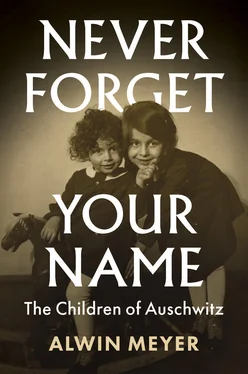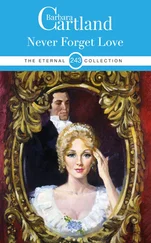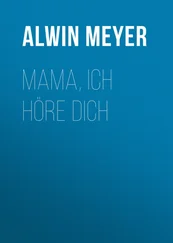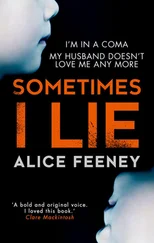Channa Markowicz Channa’s father always showed a marked interest in politics. The developments in Europe in the 1930s, particularly in Germany, worried him. ‘It must have been 1938; he wanted us to emigrate to Russia or America.’ He saw no future for himself or his family in Irshava, but his wife didn’t want to leave. ‘I’m not going anywhere as long as my mother lives here’, she said.
Dáša Friedová Although the Fried family were the only Jews in the Czech village of Odolice, where there were also a lot of Germans as well as Czechs, Dáša Friedová and her sister Sylva had no idea of the impending dangers to their lives. ‘My parents never spoke about Hitler or Nazi Germany in our presence. Perhaps they wanted to protect us.’ Besides, in their children’s presence, Otto and Kát’a Fried spoke French or German when they wanted to talk about serious matters. ‘We didn’t understand, because we children spoke only Czech.’
When, in autumn 1938, the occupation by German troops of the northern, western and southern regions of Czechoslovakia (Sudetenland), 34including Odolice, was imminent, the Fried family fled to Prague. They had to leave almost all of their things behind. It was only then that Dáša began to sense that ‘something bad is happening’.
Relatives of the Frieds wanted to leave Europe altogether. An aunt and five cousins fled to Canada. They begged the Frieds to follow them. Dáša’s mother obtained a passport. ‘But my father didn’t want to go anywhere.’ He said: ‘We’re Czech, we were born here and this is our land. The Germans won’t be here for long. We’re staying here.’ In Prague, the family moved into a nice large apartment and new furniture was acquired. Dáša and Sylva went to school again. The girls played with the children of other relatives, most of whom still lived in Prague. Life returned to normal.
‘My sister and I began to feel at home in our new surroundings. We no longer felt any antisemitism. And life began to be pleasant again.’ Until 13 March 1939, when German troops invaded Prague. Dáša was 9 years old; her sister Sylva, 12.
Sudetenland was annexed by Nazi Germany in autumn 1938. 35And on 15 March the following year, just one day after Slovakia declared its independence, the Wehrmacht occupied the rest of the country. The German terror began right after the arrival of the Wehrmacht, SS units and police. Jews, Roma and political opponents were persecuted, interned and murdered. 36Dáša’s father was also arrested immediately and imprisoned in Pankraz. While the family still lived in Odolice, at the time of the Czechoslovakian elections on 19 May 1935, 37Otto Fried had offered to drive inhabitants to the polling station with the farm’s vehicles. Among them were many Germans. Because Fried feared that they would vote for the pro-Nazi Sudeten German Party, which later merged with the Nazi Party, the vehicles never reached their destination: ‘My father told the drivers to go somewhere else. That’s why he was arrested immediately after the Germans entered Prague.’ Suddenly, Dáša and Sylva became worried again. Fortunately, their father was released after a few months. ‘I have never discovered what happened to him in prison.’
The girls became hopeful again. They continued to go to school and played with their relatives’ children. Friends also visited them in their nice apartment. ‘My mother loved to have people around her and to organize celebrations.’
Janek Mandelbaum In the Free City of Danzig/Gdańsk, around 35 kilometres from the Polish city of Gdynia, the Nazis won over 50 per cent of the vote in the May 1933 elections. In spite of the League of Nations mandate, Jews were increasingly discriminated against and expropriated. A modified version of the Nuremberg Race Laws entered into force there on 21 November 1938. 38This provoked great worry and concern for Janek’s parents, Majloch and Cyrla Mandelbaum. They wondered fearfully what that would mean for their future and whether they would be safe in Gdynia.
In autumn 1936, the following report on the situation of the Jews of Danzig appeared in the Jüdische Revue published in Mukachevo, Czechoslovakia:
The situation of the Jews … is determined by the fact that although a democratic constitution prevents Jews from being legally discriminated against and from becoming second-class citizens, the population is being urged through strong Nazi propaganda to boycott Jews economically.… As the dominant government party, the Nazis will do everything to pursue anti-Jewish legislation as in the German Reich.… A ban on kosher butchering was recently ordered as part of the Emergency Regulation Law. Other regulations are likely to follow. 39
Majloch and Cyrla Mandelbaum often received visits from friends. ‘They talked about politics nearly all the time. They had an idea about what was going on in the Nazi Reich.’ They knew about the marginalization and repression of the Jews in Germany and wondered why Hitler and his followers hated the Jews so much. Janek’s parents didn’t talk about their concerns when the children were present. ‘They wanted to protect us.’ But Janek often listened at the living-room door – or wherever he could – and learned a lot in that way.
In the meantime, Majloch Mandelbaum made successful efforts to arrange for the family’s emigration to Australia. But there was a problem: ‘The regulations specified that the husband must live for six months in the country before he could fetch his family.’ Janek’s mother did not want to be separated for six months from her husband at times like these.
‘So we didn’t go. Everything would certainly have been different for the family if we had emigrated to Australia.’ But no one, including Janek’s mother, knew at the time what awaited the family.
The summer of 1939 had begun and Janek had just celebrated his twelfth birthday. His parents wanted him to have his barmitzvah a year later, making him a fully fledged member of the Jewish community. This celebration usually takes place on the first Shabbat after the thirteenth birthday. On this day, the barmitzvah boy has to read a portion from the Torah in Hebrew. On the following day, the barmitzvah is celebrated with family and friends.
‘My father engaged a teacher to prepare me. He was meant to teach me Hebrew to study the Torah and whatever else I needed for my barmitzvah. After one or two months of lessons, the teacher disappeared and never returned. Perhaps he had fled from the impending war. The German border was just a stone’s throw away.’
One day it was announced: ‘Schools will not open as planned after the summer holidays.’ Janek and his friends were delighted: ‘Great! Longer holidays! What could be better?’
Janek’s father had a premonition, suspecting that Gdynia would be one of the first military objectives of Nazi Germany. He wanted to be sure that nothing would happen to his wife and children. ‘It was decided that we should go to my grandfather. My father believed that we would be safe with his father. He said he would follow us in a month.’ So, one morning in August, he brought his wife Cyrla and his children Ita, Jakob and Janek to the train station. It was crowded with people: ‘Many were fleeing to the interior of the country.’ The Mandelbaums embarked on what was a long journey at the time, around 550 kilometres. They were to travel for more than twelve hours.
Janek’s grandfather lived in Działoszyce in southern Poland, 55 kilometres from Kraków. ‘It was a very Jewish town’, as reflected by the population: in 1899, 4,673 of the 5,170 inhabitants were Jews; in 1910, 6,446 out of 7,688; and in the mid-1930s, over 5,000 out of 6,700. 40The Jewish community had a large synagogue seating 800 worshippers, a prayer house, a Talmud Torah school with 80 pupils, and a 15,000-square-metre cemetery. There was also a Jewish library with 3,000 books. 41
Читать дальше












